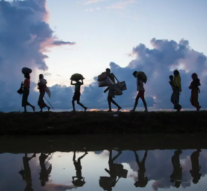
The EU competitiveness passes also through migration routes: examining recent developments
Migration 8 May 2023Estimated time of reading: ~ 2 minutes
The UK government recently announced that anyone entering the UK illegally after 1 January 2022 could be sent to Rwanda, with no limit on numbers. Rwanda can process up to 1,000 asylum seekers during the trial period, but the country has capacity for more. However, Privilege Style, the airline scheduled to take asylum seekers to Rwanda, withdrew from its Home Office contract in October 2022 after a campaign by refugee charities.
Two other airlines that had previously conducted deportation flights, Titan Airways and AirTanker, also ruled out participation in the Rwanda scheme. In parallel, the Swedish government announced that the income requirement for foreign workers would double in a bid to curb migration. The migration minister, Maria Malmer Stenergard, announced that income requirements for labor immigrants would be raised from SEK 13,000 (€1,238) per month to SEK 26,560 (€2,534). Stenergard claimed that immigration can be reduced by a few thousand people that way as the measure is designed to stop low-wage jobs.
According to figures published by the Federal Statistical Office, Destatis, roughly 20.2 million people in Germany in 2022 either moved to the country themselves or were born to two people who moved there. That’s a 6.3% rise on the 2021 figure and represents 24.3% of the total population of around 83.2 million. Of those, 15.3 million, or 18.4% of the population, moved to Germany from abroad themselves at some point in their own lifetimes. In recent years, Germany has experienced high levels of migration, with over 6 million people migrating to the country between 2013 and 2022.
The three inputs show that immigration remains a divisive issue in the EU, with some member states tightening their immigration policies while others are more welcoming. While some countries, such as Germany, continue to experience high levels of migration, others, such as Sweden, are seeking to reduce immigration by increasing income requirements for foreign workers. Meanwhile, the UK’s deal with Rwanda to process asylum seekers shows that countries are exploring unconventional solutions to manage immigration.
However, it is important to note that immigration is not just a political issue but also a humanitarian one. Immigrants fleeing conflict and persecution deserve protection, and EU member states have a moral obligation to provide them with safety and support. As such, immigration policies must balance security concerns with the protection of human rights. In conclusion, the issue of immigration in the EU remains complex and multifaceted.
While recent developments demonstrate a range of approaches by member states, it is essential to prioritize the protection and welfare of immigrants, especially those fleeing conflict and persecution. A collaborative approach that respects human rights and upholds the dignity of all individuals is crucial for a fair and just immigration policy in the EU.
Written by: Nenad Stekić


